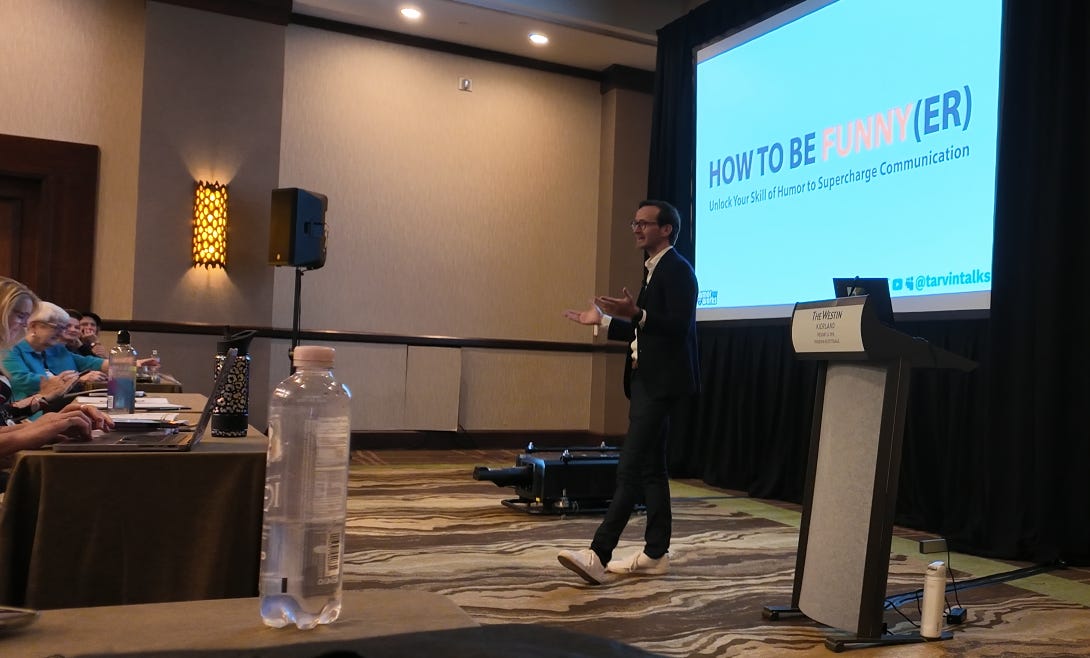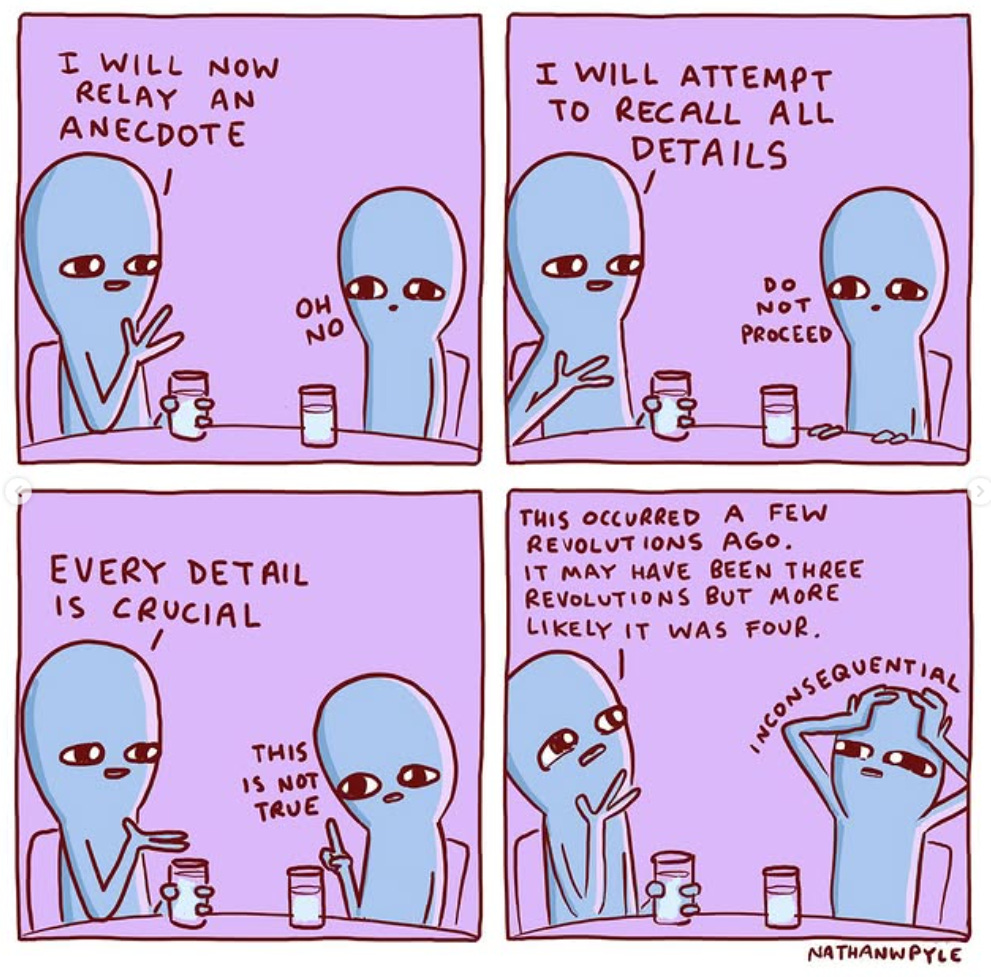The Curse of Knowledge Is Killing Your Stories
It’s not your fault, you’re too close to it. Here’s what to do.
This past July, I had the opportunity to lead a super fun workshop at Influence (a yearly conference hosted by the National Speakers Association).
The topic was How to Be Funny(er): Unlock Your Skill of Humor to Supercharge Communication. It was essentially a deep dive into helping speakers add humor to their presentations.
The message (and approach) seems to have resonated with people. Since then, I’ve done quite a bit of 1on1 coaching for keynote speakers and executives who want a little more hands-on help humorizing their talks, sales calls, and in one case, what to say at the retirement party of their boss who they didn’t care for much.
Why We’re Too Close to Our Own Stories
One of the pieces of feedback that keeps coming up over and over again is how helpful it is just to have a sounding board for ideas. As Jennifer said,
“I appreciate how much you’ve given purpose to my stories. I knew it would have to come from someone outside of me, because I’m too close to it.”
That’s a common challenge: when we live the story, we’re too close to it. It’s hard to know which details matter and which can be cut.
Psychologists call this the curse of knowledge. Once you know (or have lived) something, it’s hard to imagine what it’s like not to know (or have lived) it.
In storytelling, this makes you include too much detail (because you can’t un-know what was relevant to you) or skip over critical context (because you assume others already understand).”
Humor is especially vulnerable to this.
Some of my funniest bits didn’t come from sitting at my computer trying to “craft” a joke, but from casually sharing a story with friends and realizing what made them laugh. It took other people’s reactions for me to see what was worth telling.
Then, later, I took the time to better refine what worked and didn’t, often getting feedback from Pretzel (my wife), comedy friends, or audiences.
How to Beat the Curse of Knowledge
That’s the key to beating the curse of knowledge in storytelling: finding a sounding board. You can:
Phone a friend. Think of the best communicators you know and ask if they’ll listen to your story and give feedback (bonus points if they have a sense of humor).
Join a feedback open mic. Test material in front of others. I host one for NSA members every month (...maybe I should host one here too?).
Hire help. Authors have editors, musicians have writing partners, and speakers have coaches (like me *ahem*).
Side note: you don’t have to wait for some epic story to tell. As we say about humor,
It’s not that funny things happen to funny people, it’s that funny people see the things that happen to them in a funny way.
One of my favorite comedy bits of all time is a theoretical scenario of Darth Vader going to a cafeteria on the Death Star (warning: NSFW language).
As Jennifer experienced, sometimes you’re too close to your own stories to see their full potential. But with the right sounding board, you’ll find the details that matter, cut the ones that don’t, and hopefully even discover the humor that was there all along.
Got an important presentation coming up and want a second brain working on it? Check out my presentation consulting options.
Yabba dabba doo!
-Andrew





As my joke writing mentor once said, "Never let the facts get in the way of a good punchline." Including details that are irrelevant to the audience is like adding static. Of course, this saying does not apply to testimony, or as an excuse to mislead the audience. The idea of regular practice is very appealing, btw